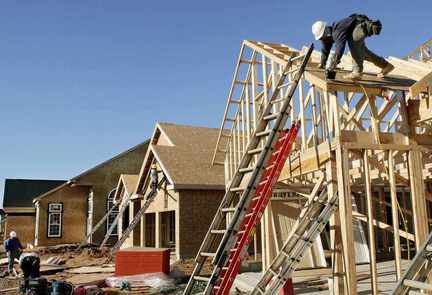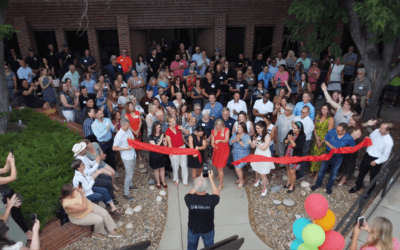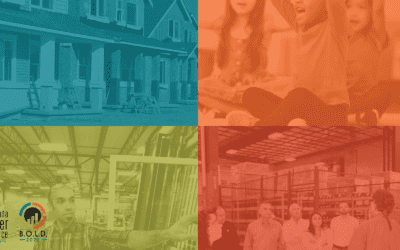Now that the dust has settled from the 2024 legislative session, and the veto pen of the Governor has been used, Arvada Chamber Advocacy KAPS Council, the Jefferson County Business Lobby (JCBL), and lobbyist Jeff Weist from Weist Capitol present 26 Bills Your Business Needs to Know.
Employment Laws
HB24-1008: Wage Claims Construction Industry Contractors
The first of three bills vetoed by the Governor this year, this bill would have placed stringent requirements on contractors to be responsible for wage theft claims and violations placed on a subcontractor.
HB24-1095: Increasing Protections for Minor Workers
This bill strengthens child labor laws, and increases fines for violations of current laws.
HB24-1220: Workers’ Compensation Disability Benefits
This bill focused on disability benefits for workers’ compensation injuries, and how those claims are paid. The most controversial proposal in the bill would have significantly raised the caps on partial permanent disability payments. Through negotiations with the business community, a compromise was reached and the bill was signed into law.
HB24-1260: Prohibition Against Employee Discipline
The second of three bills vetoed by the Governor, this bill sought to prohibit an employer from requiring an employee to attend “captive audience” meetings, and subsequently prohibit the employer from any acts of retaliation against an employee for not attending said meetings.
HB24-1324: Attorney General Restrictive Employment Agreements
This bill amends Colorado’s laws to provide the Attorney General with more oversight and enforcement authority over restrictive employment agreements, particularly regarding the recovery of expenses for educating and training workers.
Consumer Protection
HB24-1014: Deceptive Trade Practice Significant Impact Standard
This bill, Postponed Indefinitely in 2023 and again in 2024, would have remove the “Significant Public Impact Test” in the Colorado Consumer Protection Act, allowing for any individual to sue a business without having to prove broad based impact, thereby opening up business, at any time, to individual consumer lawsuits.
HB24-1121: Consumer Right to Repair Digital Electronic Equipment
Expanding on current right-to-repair laws, this bill requires manufactures, including Apple, Google and more, must make it easier for both consumers and independent repair businesses to obtain equipment necessary to make repairs themselves.
HB24-1151: Disclose Mandatory Fees in Advertisements
This bill, also known as the price transparency bill, outlaws advertising a price for a product, good, or service that does not include all mandatory or non-discretionary fees or charges, and made it a deceptive trade practice enforceable by the attorney general or a district attorney.
SB24-205: Consumer Protections for Artificial Intelligence
This bill, also known as the Colorado Artificial Intelligence (AI) Act, is considered a groundbreaking measure designed to regulate the private-sector use of AI systems, and, specifically, the risk of discrimination arising from the use of certain AI systems. This law makes Colorado the first U.S. state to enact legislation that regulates the use and development of AI systems.
Healthcare
HB24-1075: Analysis of Universal Health-Care Payment System
Another bill that ended the 2024 session Postponed Indefinitely, this piece of legislation sought to study the implementation of a statewide universal healthcare system.
Housing
HB24-1098: Cause Required for Eviction of Residential Tenant
With certain exceptions, this bill prohibits a landlord from evicting a residential tenant unless the landlord has cause for eviction and sets new definitions for proceeding with a tenant eviction.
HB24-1107: Judicial Review of Local Land Use Decision
This bill, in instances where land use cases on property for residential use are escalated to court processes, will permit for “reasonable” expenses to be recouped by the prevailing side. The bill attempts to reduce the incentives to litigate against housing developments by suing the local land use authority.
HB24-1152: Accessory Dwelling Units
Senate Bill 1152 removes laws preventing the construction of an ADU, in 21 identified areas across the state within metropolitan planning organizations.
HB24-1230: Protections for Real Property Owners
Another bill in the Postponed Indefinitely pile, this bill addressed construction defect litigation and sought to add protections for consumers to the Colorado Consumer Protection Act, set interest rates of payments on claims, expand the statute of limitations on filing a claim and permit group lawsuits against a construction professional.
HB24-1313: Housing in Transit-Oriented Communities
This bill now requires 31 local governments to change their laws allowing use-by-right for up to 40 acres aimed at increasing housing density near transit hubs.
HB24-1316: Middle Income Housing Tax Credit
This aptly titled bill fills the gap of missing middle housing, defined as people earning 80 to 120% of the Area Median Income, or AMI by provided resources and drives the Colorado Middle Income Housing Authority to work with community partners to find land and leverage funds to get housing projects off the ground and into the marketplace.
HB24-1434: Expand Affordable Housing Tax Credit
This bill tripled the annual allotment for the affordable housing tax credit with bipartisan backing from both chambers and is considered a huge win for affordable housing advocates.
SB24-106: Right to Remedy Construction Defects
Another bill that did not pass out of this legislative session, the attempted to allow a contractor the right to remedy a repair before litigation, increase the threshold for an HOA to sue from a simple majority vote to 60% of the residents, and reduce the severity and magnitude of claims of damage that produce no financial harm or are not code violations. SB 106 promises to be back next year.
SB24-233: Property Tax
Senate Bill 233 was designed to alleviate the recent trend of spikes in property taxes from increased property values by giving taxpayers stability and a 5.5% cap without a massive backfill due to school districts and removing money from state-run programs.
Education
HB24-1365: Opportunity Now Grants and Tax Credit
This bill expands pathways for students to get jobs without a college degree in areas where employers are finding shortages of skilled talent. The bill establishes a series of summits to be held statewide to get the local business community directly involved in creating the homegrown talent pipeline in their communities with insights into what jobs are needed now and in the future.
HB24-1364: Education-Based Workforce Readiness
House Bill 1364 lays the foundation for invested stakeholders, from policy makers to teachers to parents, to understand what is working when it comes to developing and implementing programs that support workforce development. The bill creates the development of a longitudinal data system to measure the long-term impacts of education and workforce development programs to see if these programs directly impact the workforce to bring more students into jobs and careers.
HB24-1439: Financial Incentives Expand Apprenticeship Programs
House Bill 1439, run by the Colorado Department of Labor, will provide tax credits and grants to businesses that expand and develop apprenticeship programs.
HB24-1448: New Public School Funding Formula
Described by experts as one of the “wonkiest bills” of the session was the long-awaited revision of the Public School Finance Formula. House Bill 1448 created a new formula based on student needs by distributing funds to school districts based on student needs, providing more money for at-risk students, English learners, and those with special education needs, while also increasing funding for rural schools.
Childcare
HB24-1223: Improved Access to the Child Care Assistance Program
Another bill described as a “wonky one,” House Bill 1223 is aimed at helping to increase access to child care, which keeps workers in the workforce by making childcare more affordable. This is tied to the federally funded Child Care Assistance Program that has been revamped in recent years to implement consistent payment practices for providers and ensure they are paid at the going market rates.
HB24-1237: Programs for the Development of Child Care Facilities
The two major issues facing child care are supply and affordability. This bill worked to address supply by taking three actions:
- Creates a Childcare Facility Development Toolkit and technical assistance program to enable interested childcare providers, developers, employers, public schools, institutions of higher education, and local governments to understand the technical aspects of planning, developing, building, and co-locating child care facilities.
- Implements a grant program that incentivizes local governments to identify and make updates or improvements to community planning, development, building, and zoning, to support the development of childcare facilities.
- Develops a capital grant program to provide funds to build, remodel, renovate, or retrofit a childcare facility to meet the need for childcare in communities across Colorado.
HB24-1311: Family Affordability Tax Credit
To address affordability of childcare, House Bill 1311 provides a tax credit of $3,200 per child to low- and middle-income taxpayers. The tax credit is only applicable when TABOR refunds are issued from the state. No TABOR refunds, no tax credit.
———–
B.O.L.D. 2026 is a five-year regional economic strength and resiliency initiative of the Arvada Chamber of Commerce. The Chamber developed BOLD 2026 in consultation with private and public sector leaders and partners in Arvada, Jefferson / Adams Counties, Metro Denver and the state of Colorado. One goal of B.O.L.D. 2026 is to grow our talent to meet the needs of employers and job seekers. Learn more about our talent challenges and work here.





0 Comments